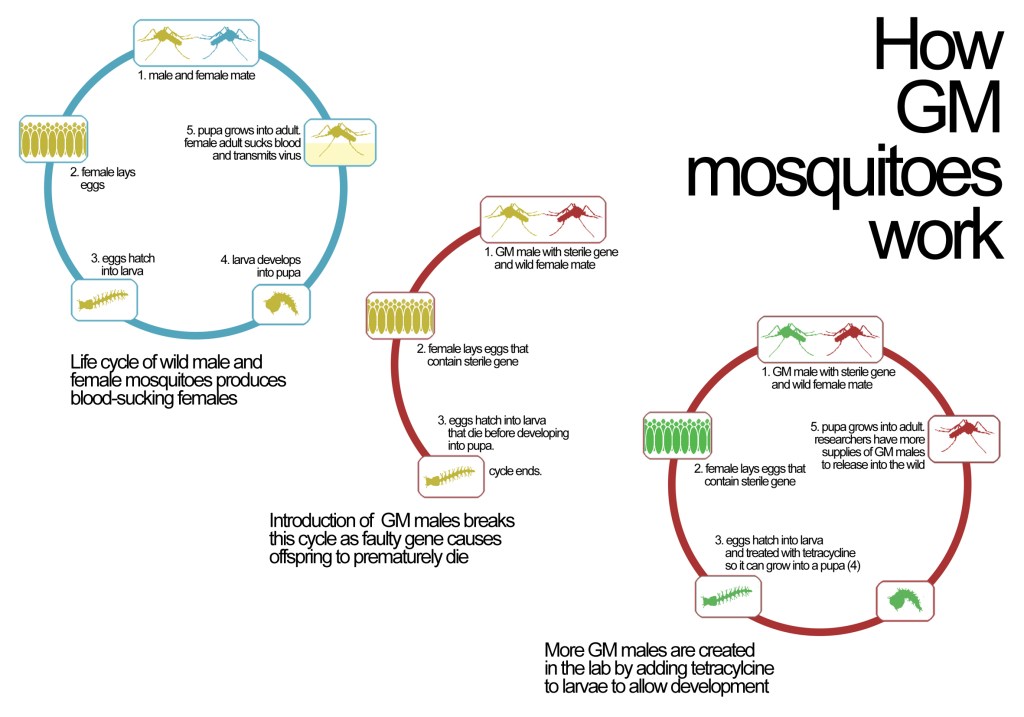Why in news?
The Department of Biotechnology (DBT) is hesitant to permit field trials to release GM mosquitoes to tackle certain diseases.
What is the initiative?
- Aedes aegypti mosquito is the carrier of diseases such as Zika, dengue and chikungunya.
- A new initiative thus aims at reducing the population of Aedes aegypti mosquito.
- It comes from the Mumbai-based company, Gangabishan Bhikulal Investment and Trading Limited (GBIT).
What is the new gene?
- Diseases such as Zika, dengue and chikungunya are transmitted when an infected, pregnant female mosquito bites somebody.
- Males do not bite and are, therefore, harmless.
- So GBIT wants to introduce a new Genetically Modified (GM) male Aedes aegypti mosquito.
- This GM insect has been bred by Oxitec, an R&D biotech company with roots in the University of Oxford.
- Oxitec has bio-engineered a transgenic male Aedes aegypti mosquito.
- This carries a new gene fatal only to female mosquitoes.
What does it do?
- The idea is to release a large number of such GM male mosquitoes into the trial zone.
- These will then breed with normal females in the wild.
- In the next generation, only the males would survive and these would breed again, with normal females.
- After a few generations, the female population will be drastically reduced.
- Eventually this cycle will result in a reduction of the entire mosquito population.

How is it justified?
- The life cycle of a mosquito is only around two-three weeks.
- So the effects of the trial should be apparent in a few months.
- Transgenic males do not bite and the modified genes are said to be harmless to humans.
- The so-called “Friendly Aedes” project launched “closed cage” trials at the Oxitec facility in Maharashtra.
- Trials have been launched in Malaysia, Brazil, and Florida as well.
- Given these, permission has now been sought for open field trials in India.
Why is DBT hesitant to approve?
- Indian policy has been very cautious about allowing the genetically modified technologies.
- DBT scientists fear that there may be unknown hazards associated with large scale trials.
- It is thus feared that it could result in harmful consequences to the environment or ecology.
- Notably, the Aedes aegypti is part of the food chain.
- During its life cycle, it is consumed by fishes.
- Also, during its early aquatic phase, it is consumed by frogs and then by birds, lizards and spiders.
- A drastic reduction in the mosquito population could thus impact prey species.
- This could also potentially result in ecological collapse.
- There is also a possibility that the engineered genes could directly harm the species that consume mosquitoes.
- More research may be required to ensure that there are no unforeseen consequences.
Source: Business Standard
